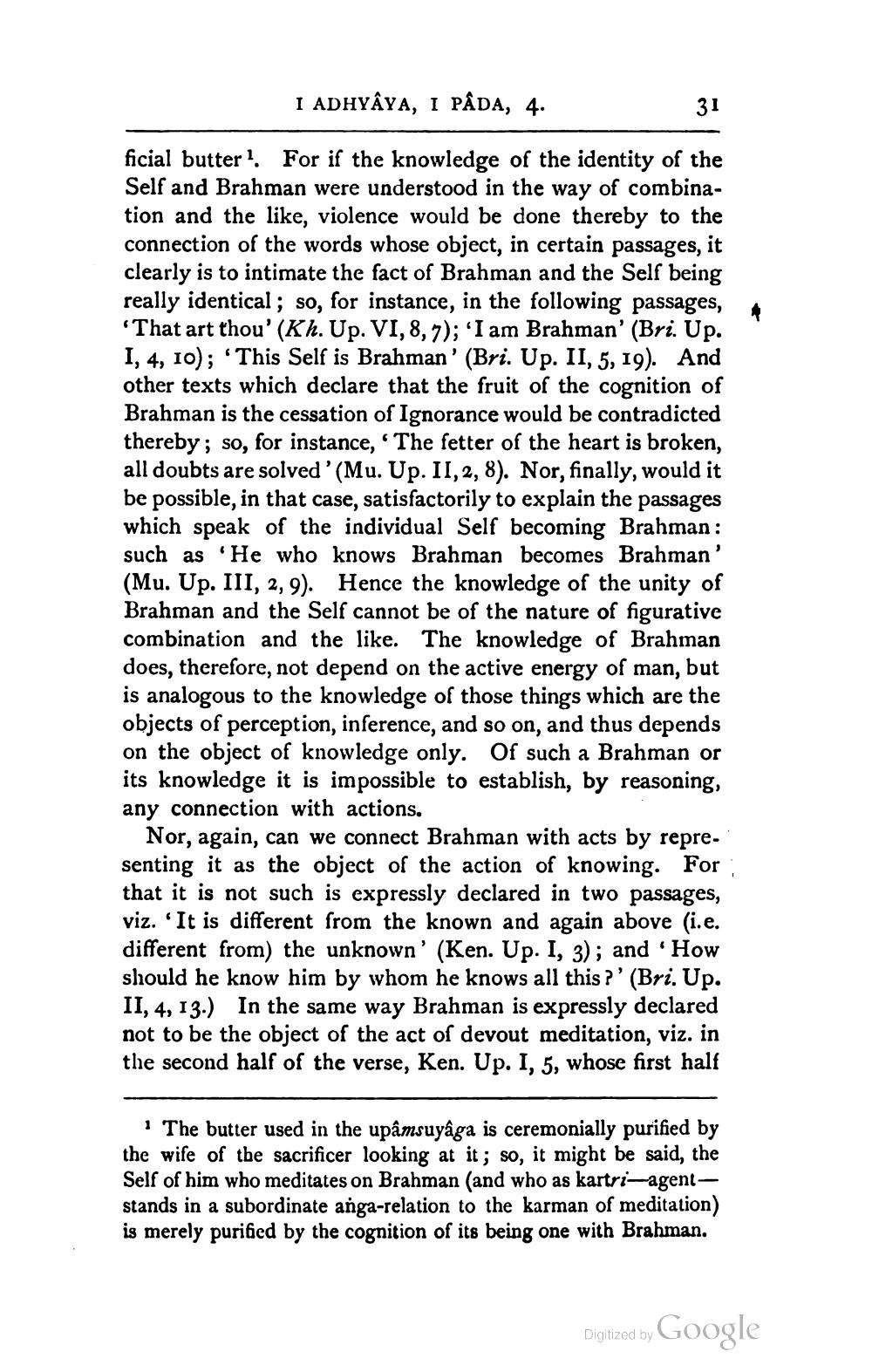________________
I ADHYAYA, I PÂDA, 4.
31
ficial butter? For if the knowledge of the identity of the Self and Brahman were understood in the way of combination and the like, violence would be done thereby to the connection of the words whose object, in certain passages, it clearly is to intimate the fact of Brahman and the Self being really identical ; so, for instance, in the following passages, 'That art thou' (Kh. Up. VI, 8, 7); 'I am Brahman' (Bri. Up. I, 4, 10); “This Self is Brahman' (Bri. Up. II, 5, 19). And other texts which declare that the fruit of the cognition of Brahman is the cessation of Ignorance would be contradicted thereby; so, for instance, 'The fetter of the heart is broken, all doubts are solved'(Mu. Up. II, 2,8). Nor, finally, would it be possible, in that case, satisfactorily to explain the passages which speak of the individual Self becoming Brahman: such as 'He who knows Brahman becomes Brahman' (Mu. Up. III, 2,9). Hence the knowledge of the unity of Brahman and the Self cannot be of the nature of figurative combination and the like. The knowledge of Brahman does, therefore, not depend on the active energy of man, but is analogous to the knowledge of those things which are the objects of perception, inference, and so on, and thus depends on the object of knowledge only. Of such a Brahman or its knowledge it is impossible to establish, by reasoning, any connection with actions.
Nor, again, can we connect Brahman with acts by repre. senting it as the object of the action of knowing. For that it is not such is expressly declared in two passages, viz. It is different from the known and again above (i.e. different from) the unknown' (Ken. Up. I, 3); and How should he know him by whom he knows all this?' (Bri. Up. II, 4, 13.) In the same way Brahman is expressly declared not to be the object of the act of devout meditation, viz. in the second half of the verse, Ken. Up. I, 5, whose first half
I The butter used in the upâmsuyaga is ceremonially purified by the wife of the sacrificer looking at it; so, it might be said, the Self of him who meditates on Brahman (and who as kartri-agentstands in a subordinate anga-relation to the karman of meditation) is merely purified by the cognition of its being one with Brahman.
Digitized by Google




